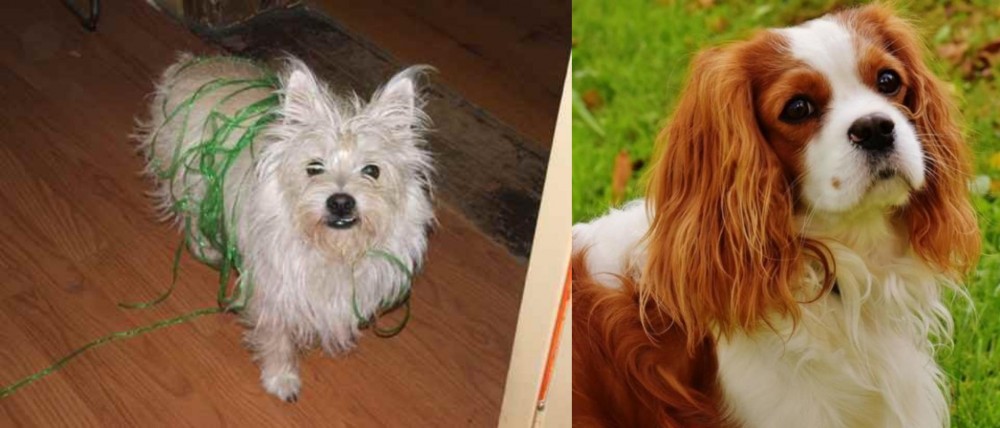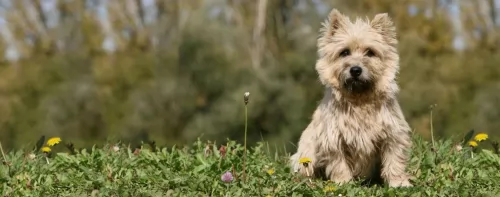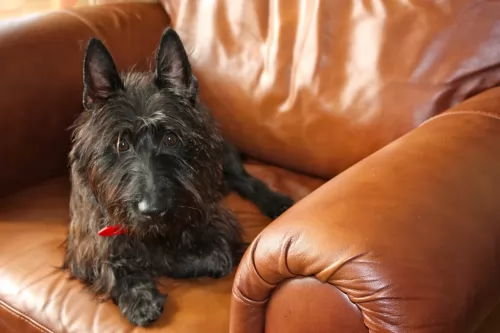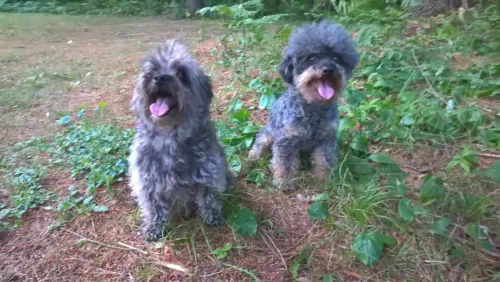 Petzlover
Petzlover Both Cairland Terrier and Cavalier King Charles Spaniel are originated from United Kingdom. Both Cairland Terrier and Cavalier King Charles Spaniel are of same height. Both Cairland Terrier and Cavalier King Charles Spaniel are having almost same weight. Cairland Terrier may live 3 years more than Cavalier King Charles Spaniel. Cairland Terrier may have more litter size than Cavalier King Charles Spaniel. Cairland Terrier requires Low Maintenance. But Cavalier King Charles Spaniel requires Moderate Maintenance
Both Cairland Terrier and Cavalier King Charles Spaniel are originated from United Kingdom. Both Cairland Terrier and Cavalier King Charles Spaniel are of same height. Both Cairland Terrier and Cavalier King Charles Spaniel are having almost same weight. Cairland Terrier may live 3 years more than Cavalier King Charles Spaniel. Cairland Terrier may have more litter size than Cavalier King Charles Spaniel. Cairland Terrier requires Low Maintenance. But Cavalier King Charles Spaniel requires Moderate Maintenance
 The Cairland Terrier is a cross between the Cairn Terrier and the West Highland White Terrier. It simply means that if you own a Cairland, you’re going to get a little bit of each dog in him.
The Cairland Terrier is a cross between the Cairn Terrier and the West Highland White Terrier. It simply means that if you own a Cairland, you’re going to get a little bit of each dog in him.
This hybrid is a new breed which means you’re not going to get too much documented history on the dog. A tough little hunter of fox and otter, the Cairnland is thought to hail from Scotland.
 The origin of the Cavalier King Charles Spaniel goes back many centuries. It was in 1928 that this spaniel breed was separated from the smaller King Charles and these were particularly popular with royalty in England.
The origin of the Cavalier King Charles Spaniel goes back many centuries. It was in 1928 that this spaniel breed was separated from the smaller King Charles and these were particularly popular with royalty in England.
In fact, Mary, Queen of Scots had one of these spaniels who accompanied her to her beheading. It was her grandsons who gave their name to the breed, and King Charles II, who reigned from 1660 to 1685 kept these dogs. After Charles II's death, the dog’s popularity waned somewhat. The dog was later bred with pugs giving them the familiar features they have today, such as the domed head and the shorter nose.
Interest in the breed revived, and a breed -club was established, drawing up a breed standard. Finally, in 1945, the Cavalier King Charles Spaniel was recognized as a separate breed.
 The Cairland Terrier is a small dog standing anything between 20 and 35cm in height and weighing in at roughly 4 to 10kg. He has short legs, a compact little body, while being muscled and strong. He has small erect ears with a shortish upright tail.
The Cairland Terrier is a small dog standing anything between 20 and 35cm in height and weighing in at roughly 4 to 10kg. He has short legs, a compact little body, while being muscled and strong. He has small erect ears with a shortish upright tail.
The color of the medium length coat can be fairly varied which means brown, black, cream, fawn, brindle or even white from the Westie. The dog has two coats with the topcoat being fairly harsh, coarse and straight to slightly wavy while the undercoat is soft.
When it comes to temperament, the Cairland Terrier is social and feisty with a high self-esteem. He has a strong personality and can be somewhat stubborn but he is a great friend of children in the home. He just loves to take part in all their games.
With training and socialization which he undergoes easily, he will get on well with other pets too, although he can become aggressive with other dogs in his territory.
 The Cavalier King Charles Spaniel is a small to medium sized dog wih its height being 31 – 33cm and its weight being 5 – 8 or 9 kg. He is known for his long, silky coat which is fairly straight and feathery.
The Cavalier King Charles Spaniel is a small to medium sized dog wih its height being 31 – 33cm and its weight being 5 – 8 or 9 kg. He is known for his long, silky coat which is fairly straight and feathery.
He has floppy ears, and with this Spaniel breed the tail is generally left long and feathery. The coat comes in many different colors so you will find the popular rich red shade with white, he can be black and tan or even tri-color.
The Cavalier King Charles Spaniel is affectionate, playful and eager to please. He makes an excellent pet for children as well and gets on well with other pets in the home too.
They adapt quickly to different environments and will be happy in the city or in the country, so long as his owner is with him and meters out lots of love and attention. He is intelligent and responds well to training and socialization, turning him from a playful puppy into a relaxed, obedient adult dog.
The Cavalier loves to be active but he also loves to be quietly lying next to his owner. It is also why these dogs make such splendid companions for the elderly as well as being a good choice for therapy dogs.
 Terriers are dogs that are full of character and self-confidence, and your Cairland Terrier is no different. These small dogs in the Terrier group don’t actively look for a fight with other dogs, but if they are provoked, they aren’t intimidated and will give bigger dogs a piece of their mind. They make splendid pets and will always be ready for a game.
Terriers are dogs that are full of character and self-confidence, and your Cairland Terrier is no different. These small dogs in the Terrier group don’t actively look for a fight with other dogs, but if they are provoked, they aren’t intimidated and will give bigger dogs a piece of their mind. They make splendid pets and will always be ready for a game.
Make sure that your Cairland Terrier remains the feisty little character he is by making sure he gets well looked after. Dogs aren’t known as man’s best friend for nothing, and in exchange for the care you give your Terrier, you’ll be rewarded by a loyal and devoted friend.
 The Cavlier King Charles Spaniel is an affectionate, playful and eager-to-please dog breed that is good with children and other dogs. They will be happy to join you in any games you have in mind but will easily lie quietly beside you for companionship too.
The Cavlier King Charles Spaniel is an affectionate, playful and eager-to-please dog breed that is good with children and other dogs. They will be happy to join you in any games you have in mind but will easily lie quietly beside you for companionship too.
This spaniel breed is exceptionally intelligent and can be easily trained and socialized, making them even better behaved dogs.
For their gentle, sweet nature, it is no wonder that they make such excellent therapy dogs for children and adults, and he is willing to be a wonderful friend to you too.
 Your Cairland is a tough, feisty little dog and you’re not going to find yourself constantly having to take him to the vet. However even healthy dogs can be affected by ill health, and we look at a couple of illness you want to watch for with your Terrier.
Your Cairland is a tough, feisty little dog and you’re not going to find yourself constantly having to take him to the vet. However even healthy dogs can be affected by ill health, and we look at a couple of illness you want to watch for with your Terrier.
This can be brought on by a change in diet. Usually you can keep food away from your pet for 24 hours, allowing the stomach to empty and to settle. However, if there is blood in the diarrhoea or your dog is vomiting, then veterinary advice must be sought.
Just like humans, a dog can have an allergy to pollen where you see watering of the eyes as well as sneezing. This is because of inflammation of the mucous membranes in the nose. Your vet can ease the problem for your pet.
 Cavaliers are generally fairly healthy dogs but they are prone to mitral valve disease which can lead to heart failure. The heart as 4 chambers and each chamber has a one-way valve to keep blood from flowing backward. One of these is the mitral valve and it can leak over time resulting in a heart murmur. Dogs as young as 4 years of age can develop a murmur from a leaking mitral valve.
Cavaliers are generally fairly healthy dogs but they are prone to mitral valve disease which can lead to heart failure. The heart as 4 chambers and each chamber has a one-way valve to keep blood from flowing backward. One of these is the mitral valve and it can leak over time resulting in a heart murmur. Dogs as young as 4 years of age can develop a murmur from a leaking mitral valve.
Congestive heart failure develops, your dog has a chronic cough and lacks stamina. A veterinary cardiologist may need to be called in to recommend some kind of medical intervention. The vet will evaluate your pet's condition and lifestyle before making a recommendation.
Other health problems which the Cavalier might have to contend with will be luxating patella as well as eye issues.
This condition affects toy breeds, occuring when the kneecaps slip out of place. It can be severe enough to cause lameness in the dogs leg, but fortunately it can be managed with an anti-inflammatory or even surgery.
 Because the Cairland Terrier is a hybrid breed, the coat can be wiry or soft, but it’s a low maintenance coat. He will need to be brushed twice a week. Some people take their Cairland to have the coat professionally trimmed while others buy a special stripping tool and they strip the hair a couple of times a year.
Because the Cairland Terrier is a hybrid breed, the coat can be wiry or soft, but it’s a low maintenance coat. He will need to be brushed twice a week. Some people take their Cairland to have the coat professionally trimmed while others buy a special stripping tool and they strip the hair a couple of times a year.
Small dogs are prone to dental disease, so you will need to brush your Cairland’s teeth at least two or three times a week. Dental disease is a serious problem with dogs and it won’t only affect the teeth and gums but it can result in infection which can contribute to organ failure. Periodontal disease is always a big problem with little dogs. If you’re not sure how to go about looking after your dog’s teeth, you can always take your dog to the vet for dental check-ups and cleaning.
 The Cavalier Spaniel’s long silky coat will require brushing at least twice a week to remove loose hairs and to keep it healthy and shiny. This is one spaniel however, that won’t require trimming. However, because he loves to be playing outdoors, some owners do trim the dog’s feathers around the legs and paws.
The Cavalier Spaniel’s long silky coat will require brushing at least twice a week to remove loose hairs and to keep it healthy and shiny. This is one spaniel however, that won’t require trimming. However, because he loves to be playing outdoors, some owners do trim the dog’s feathers around the legs and paws.
As a dog with floppy ears, it will become essential to check his ears for wax build-up and moisture within the ears combined with dirt. This can lead to ear infections. Also the silky ears can be prone to matting. You can wash them gently with dog shampoo.
Smaller dogs like the Cavalier Spaniel are more likely to develop dental problems because of the structure of their skulls and jaws which are more compressed. Brush your dogs teeth 2 or 3 times a week with special canine tooth-paste and toothbrush.